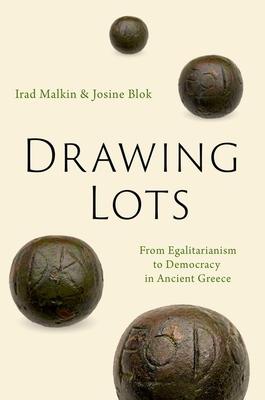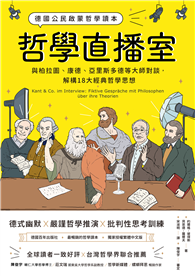For the first time, this volume by two leading historians offers a comprehensive study of drawing lots as a central institution of ancient Greek society. Drawing lots expressed an egalitarian mindset that guided selection, procedure, and distribution by lot and was eventually introduced for polis governance, a Greek innovation that appears to be of increasing relevance today.
The authors explore the egalitarian, "horizonal," mindset expressed in using the lot instead of a top-down vision of authority and sovereignty. Drawing lots presupposed equality among participants deserving equal "portions" and was used for distributing land, inheritance, booty, sacrificial meat, selecting individuals, setting turns, mixing and reorganizing groups, and divining the will of the gods. Lot-oracles were used for divination; otherwise, the gods guarded the justice of the procedure but only rarely determined the outcome. It was a self-evident method broadly and ubiquitously applied. Drawing lots would crystallize community boundaries and emphasize its sovereignty. The book further investigates the transposition of the drawing of lots to the governance of the polis. The implied egalitarianism of the lot often conflicted with top-down perceptions of society and the values of inequality, status, and merit. Drawing lots was introduced into oligarchies and democracies at an uneven pace and scale. Its wide use in the democracy of classical Athens was an exceptional case, eye-catching both in antiquity and today. The book concludes with a discussion about the meaning of the Greek examples for drawing lots today and the increasing interest in using random selection in politics as a possibility for modern democracies around the world. The appendix surveys the Greek vocabulary of lottery practices.| FindBook |
|
有 1 項符合
Drawing Lots: From Egalitarianism to Democracy in Ancient Greece的圖書 |
 |
$ 8940 | Drawing Lots: From Egalitarianism to Democracy in Ancient Greece
作者:Malkin 出版社:Oxford University Press, USA 出版日期:2024-05-21 語言:英文 規格:精裝 / 560頁 / 普通級/ 初版  看圖書介紹 看圖書介紹
|
|
|
圖書介紹 - 資料來源:博客來 評分:
圖書名稱:Drawing Lots: From Egalitarianism to Democracy in Ancient Greece
內容簡介
作者簡介
Irad Malkin is Emeritus Professor of History at Tel Aviv University, a Foreign Member of the Athens National Academy, a member of the European Network for the Study of Ancient Greek History, and the author of numerous books, including A Small Greek World.
|











